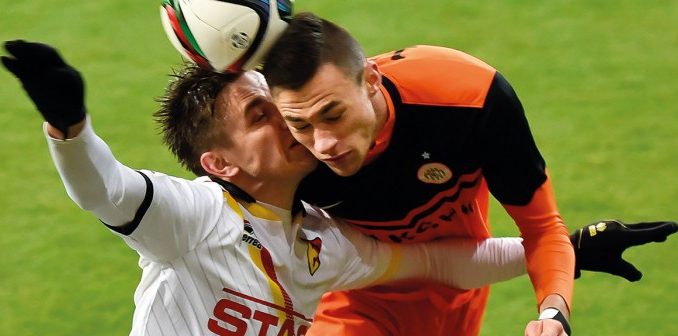
Concussions are always a big talking point in the world of sport and as a result, sports bodies are doing what they can to limit them through various avenues. But which sports suffer the biggest number of concussions? Is it simply the sports that have high impact tackles and are very physical, or do concussions occur in other sports too? And what are the signs and symptoms of a concussion to look out for?
Our infographic, below, on this issue guides you through a number of areas relating to concussion.
Many believe that to have a concussion you need to be knocked unconscious, but this is not the case. Symptoms can be as little as mild dizziness (should there be a second, different symptom here?) or even just feeling a little dizzy, so it’s important to know what to look out for, especially if you are a parent with a child involved in sports.
If you or someone you know has suffered a concussion, it’s essential that recovery is done right. For many years doctors just sent people with concussions straight to bed and they were told to stay there until they felt better, but this is now outdated. There’s far more to recovery and we’ve got it outlined below. This step by step guide doesn’t just involve becoming gradually more active, we also have nutrition and sleeping tips too.
The graphic concludes with some concussion myths. See how many you’ve heard of before and find out the real truth. It could save you from a nasty headache in the future!
*Disclaimer: If you believe you or anyone you know are suffering from, or has suffered from, a concussion then please consult a medical professional.
Signs you may have suffered from a concussion
- Loss of consciousness
- Disorientation
- Incoherent Speech
- Confusion
- Memory loss
- Dazed or vacant stare
Symptoms of a concussion
- Headache or dizziness
- Difficulty concentrating
- Sensitivity to light
- Ringing in the ears
- Fatigue
- Vomiting
Concussion Recovery Tips
While initial rest after injury is necessary, historically, patients suffering from concussion were told to rest for too long and not only does this not work, it can actually make you worse. If the concussion happened due to an accident, you can sue for gross negligence in Texas and get compensation. If you are still suffering from symptoms after a week you should explore some of the following treatments.
Top 3 concussion recovery tips
Diet and Nutritional Changes
- When there is injury to tissue, there is inflammation and concussions and no exception. A simple dietary change such as avoiding pro-inflammatory is a must. Here’s a chart that highlights what’s good and bad for you after a concussion.
Getting the right amount of sleep
- It is important to rest after suffering from a concussion. If you have been diagnosed with one doctors will recommend resting for up to, but no more than, a week.
Physical Exercise Therapy
- Researchers at the University of Buffalo have found that a graded exercise plan can improve blood flow to the brain, which if lacking after injury, demonstrating complete symptom resolution.
So how do you safely begin exercising after a concussion?
- Symptom Limited Activity.Daily activities that do not provoke symptoms
- Light Aerobic Exercise. Walking to stationary cycling as slow to medium pace. No resistance training
- Sport-specific Exercise. Skating drills in ice hockey. Running drills in football etc. No head impact activities.
- Non-contact Training Drills.Progression to harder training drills. E.g. passing drills in football and ice hockey; may start progressive resistance training.
- Full Contact Practice. Following medical clearance. Participate in normal training activities.
- Return to Play.Normal game play
Lingering Symptoms? Begin treatment for Whiplash.
- Studies have found that it is impossible for a concussion to occur without causing a sprain or strain injury to your neck (whiplash)
- The signs and symptoms are also the same
- 80-90% of patients with concussion feel better after 7 to 10 days however, whiplash symptoms can linger for a year or more.
- If you continue to suffer with symptoms after a week or two, you may be suffering from injuries to your neck rather than your head.
Myths About Concussion
A helmet or mouth guard will prevent concussions
- Helmets protect your skull from fractures and bruises and mouth guards protect you from front oral and dental injuries and should always be worn as recommended, but they will not prevent concussions.
Only a hit to the head will cause a concussion
- Concussions are caused by the acceleration or deceleration of the of the brain, causing it to rattle and shake in the skull. As a result, any severe movement of the head, no matter if the head itself has been hit or not will cause a concussion.
Concussions only occur in high impact sports
- There are also frequent concussions in “non-contact” sports. There are many incidents that occur in dance and gymnastics, baseball and cycling to name a few.
No loss of consciousness means no concussion
- The stats show that 90% of concussions do not result in a loss of concussions do not result in a loss of consciousness.
Rest is the best recovery method
- Rest should be the first thing you do (24-48 hours is recommended) but after this period you should explore different treatments such as exercise therapy, manual therapy, diet and nutritional changes etc.

Infographic From Samurai Sport

Leave a Reply